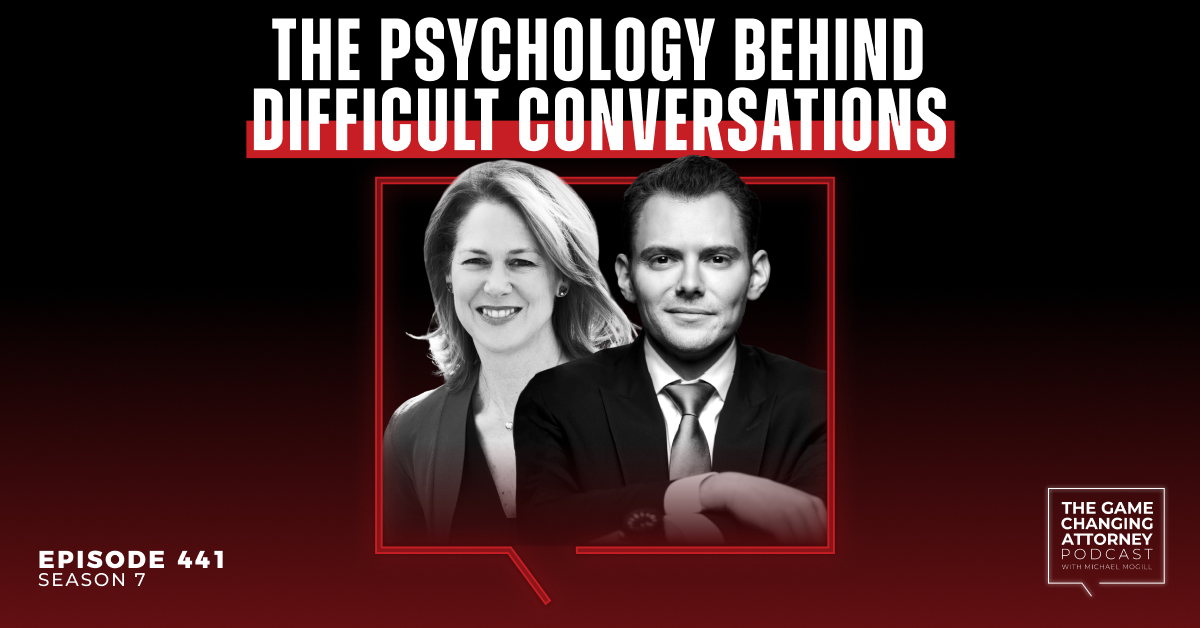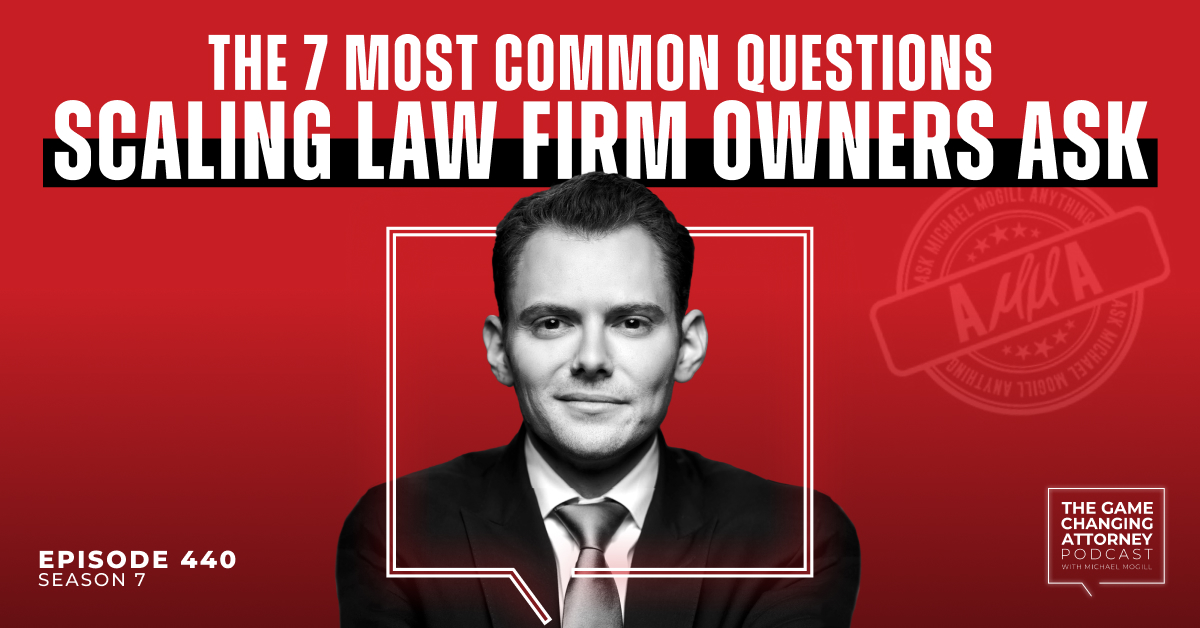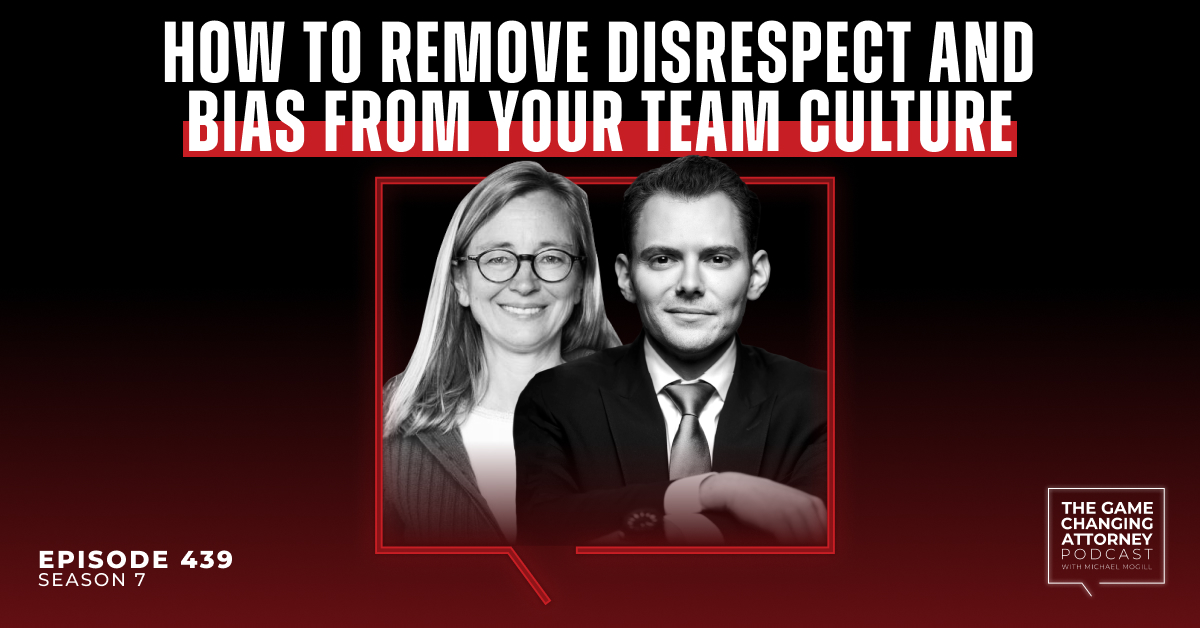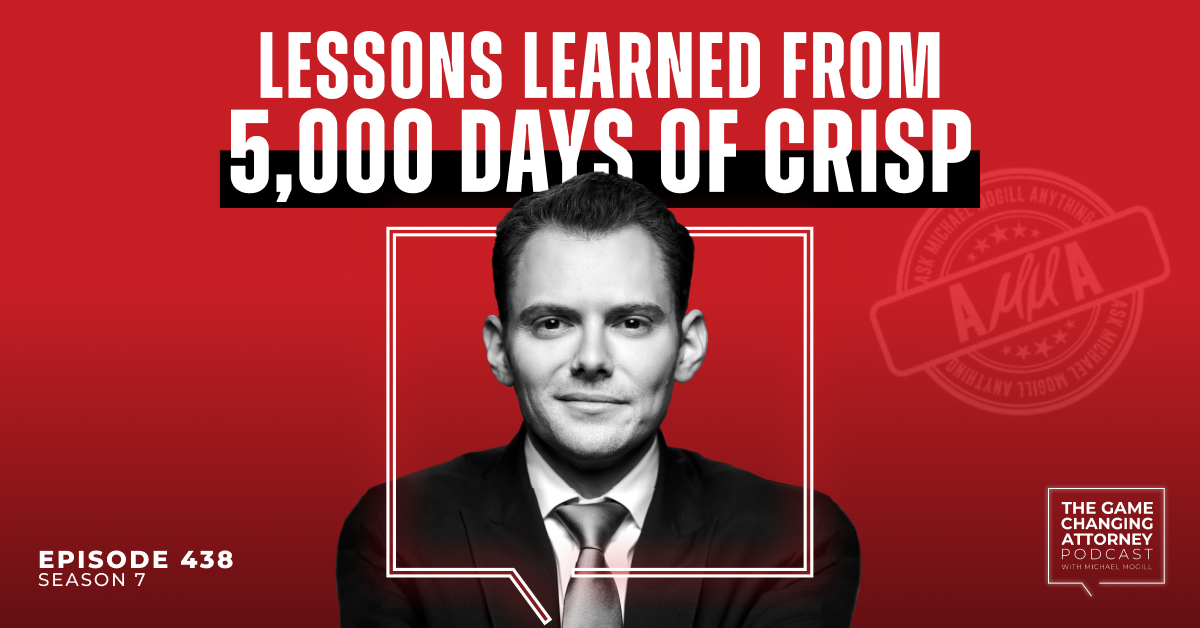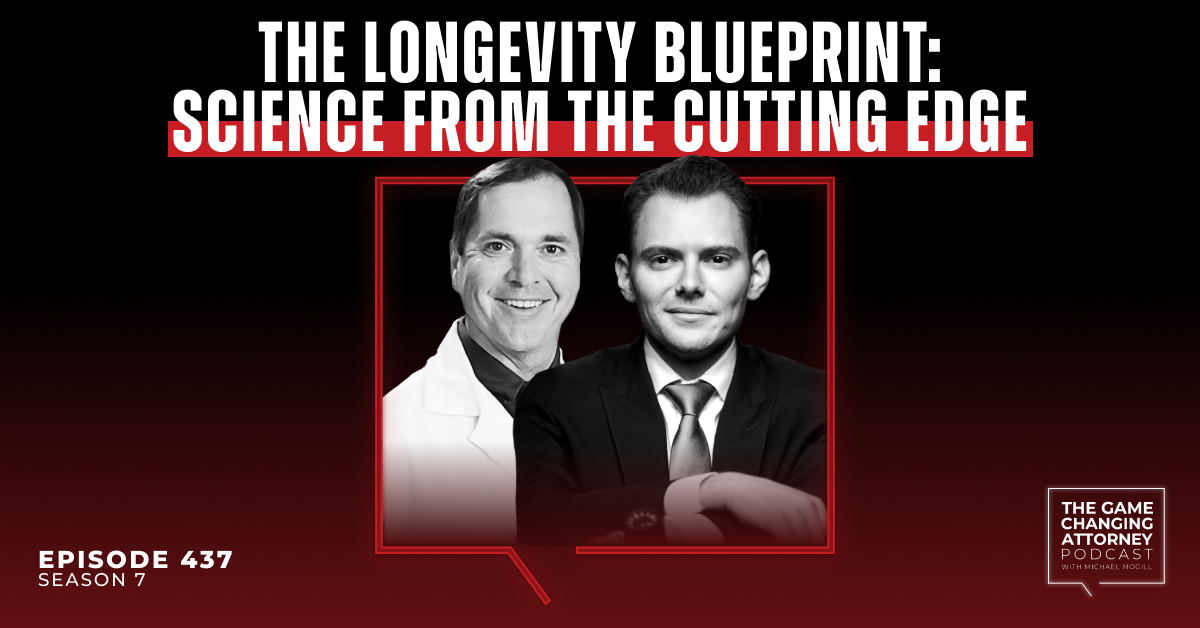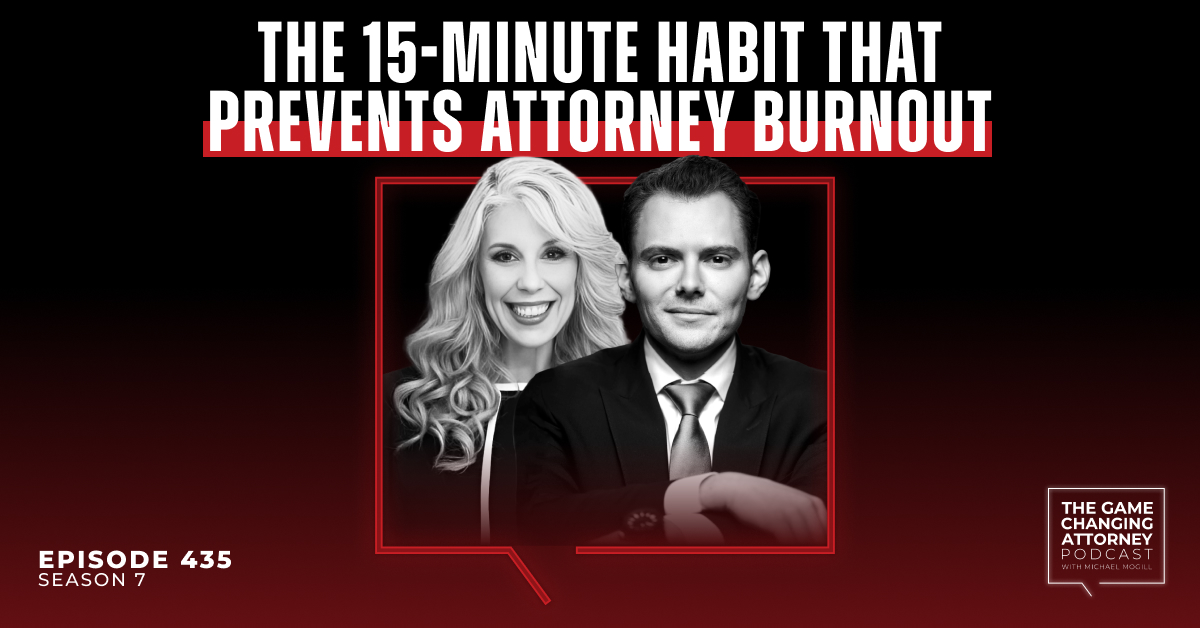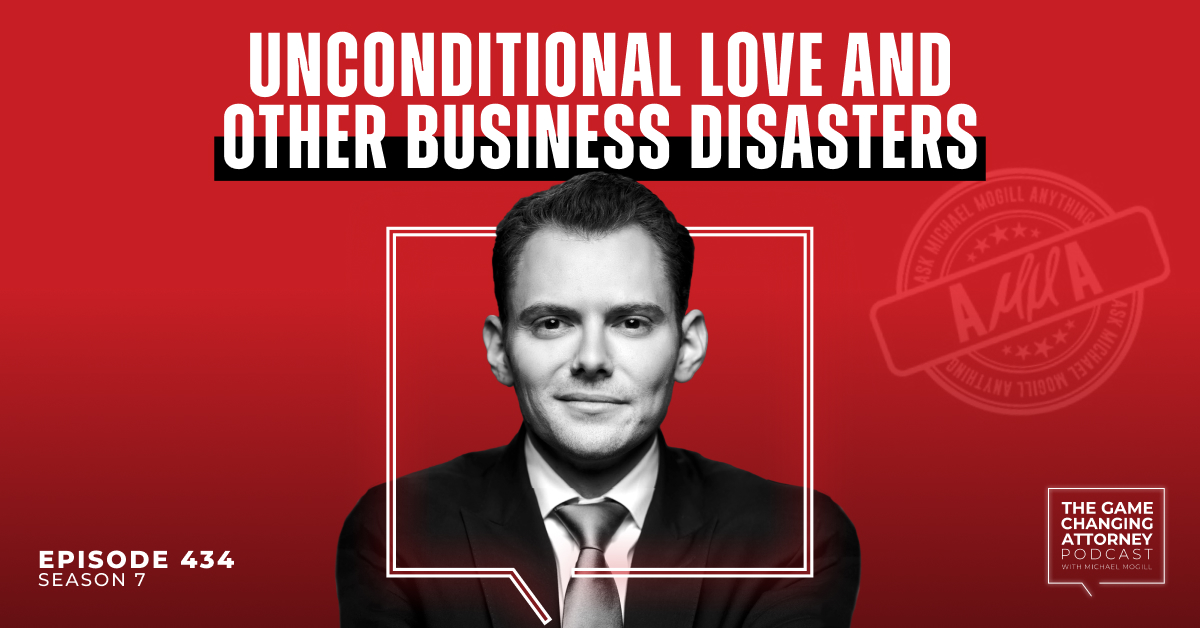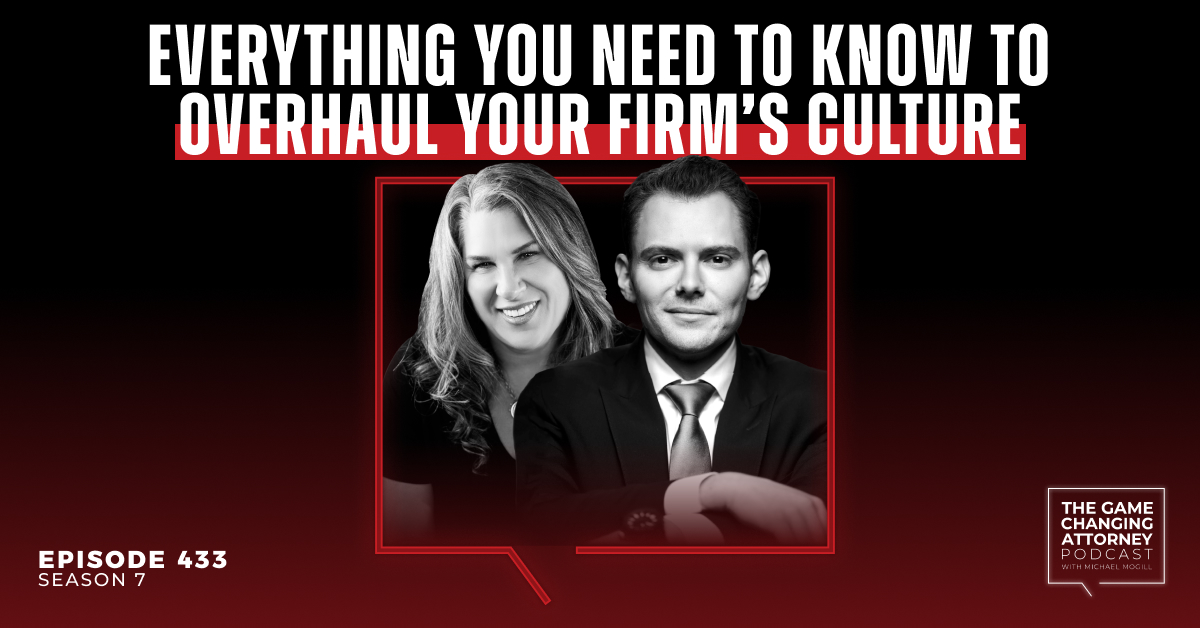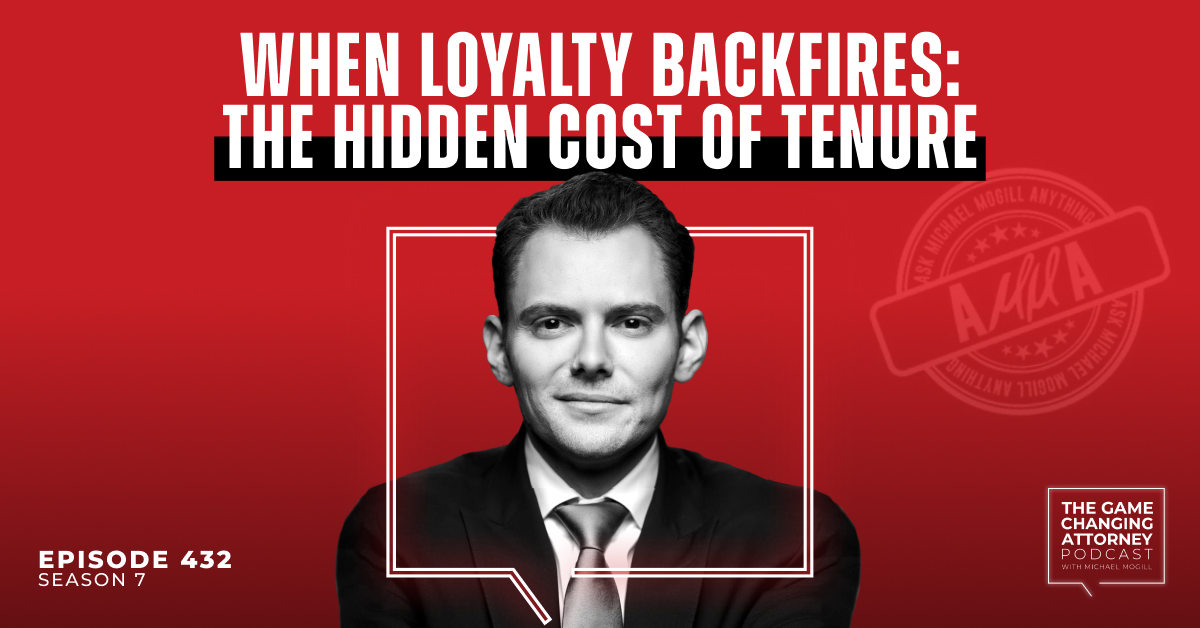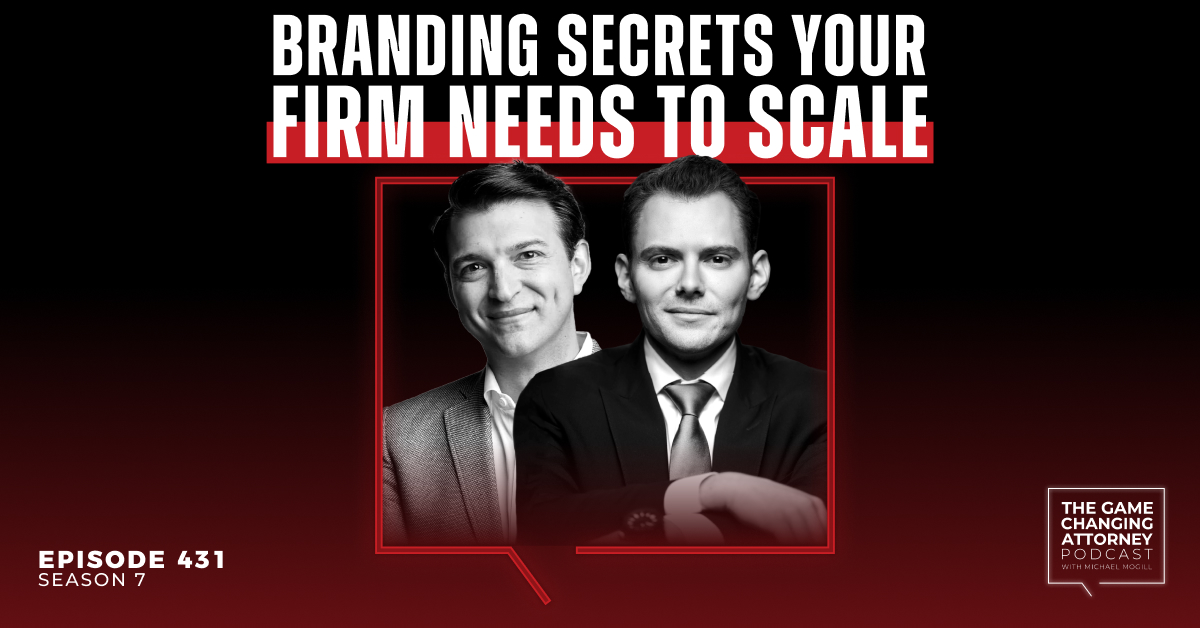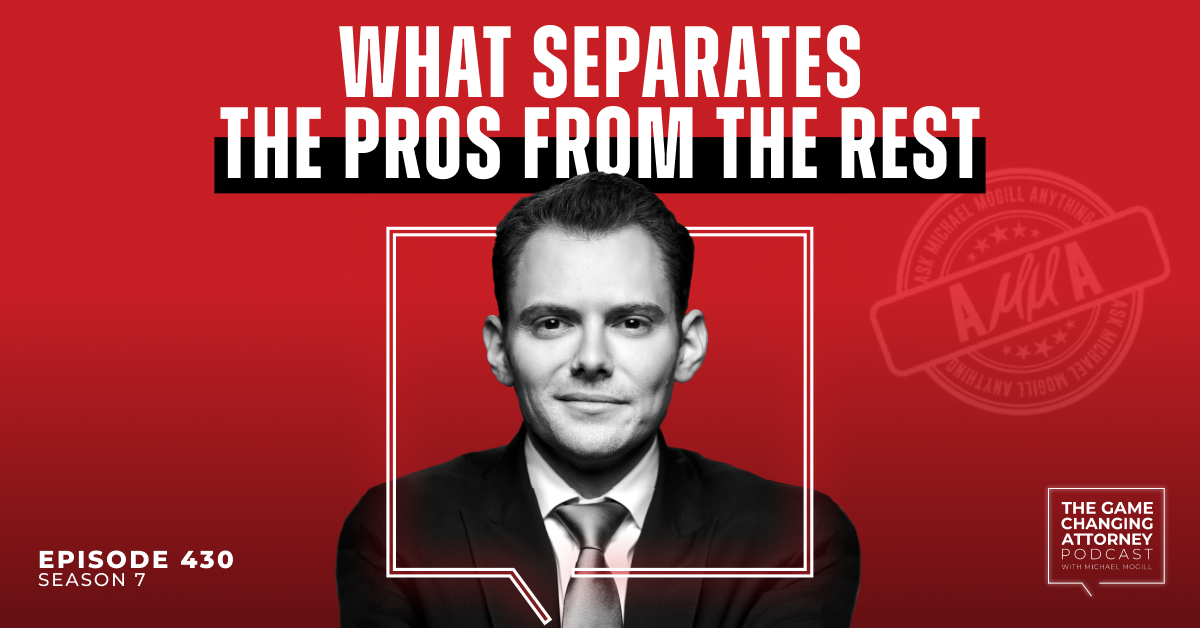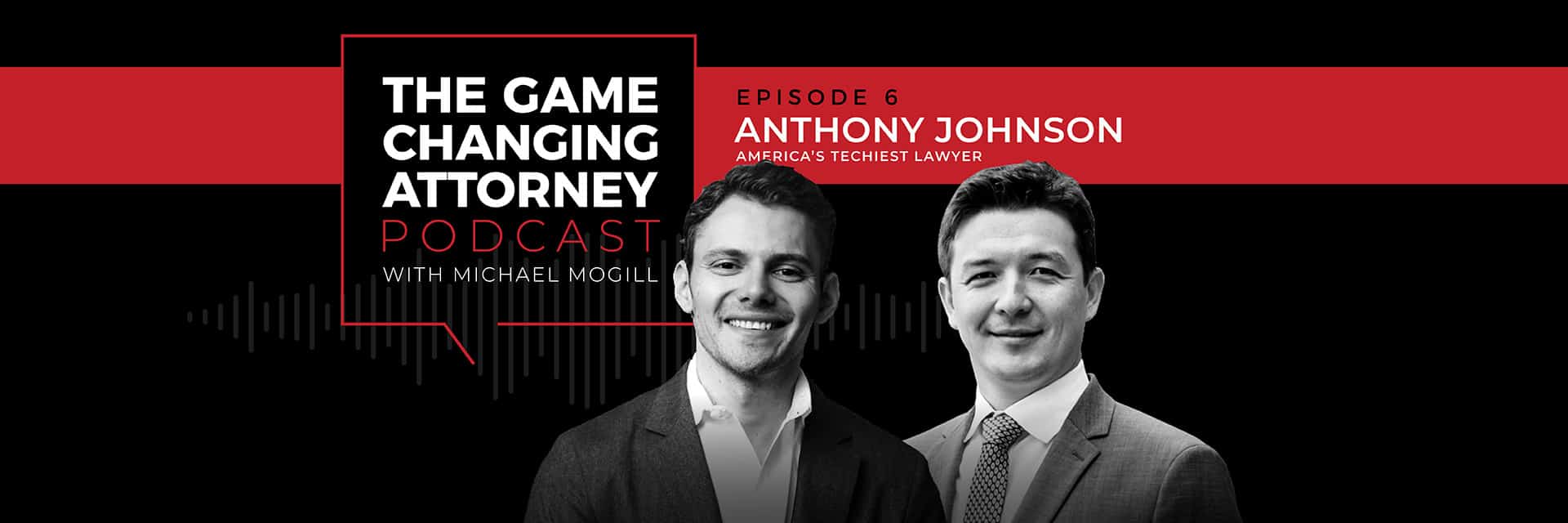
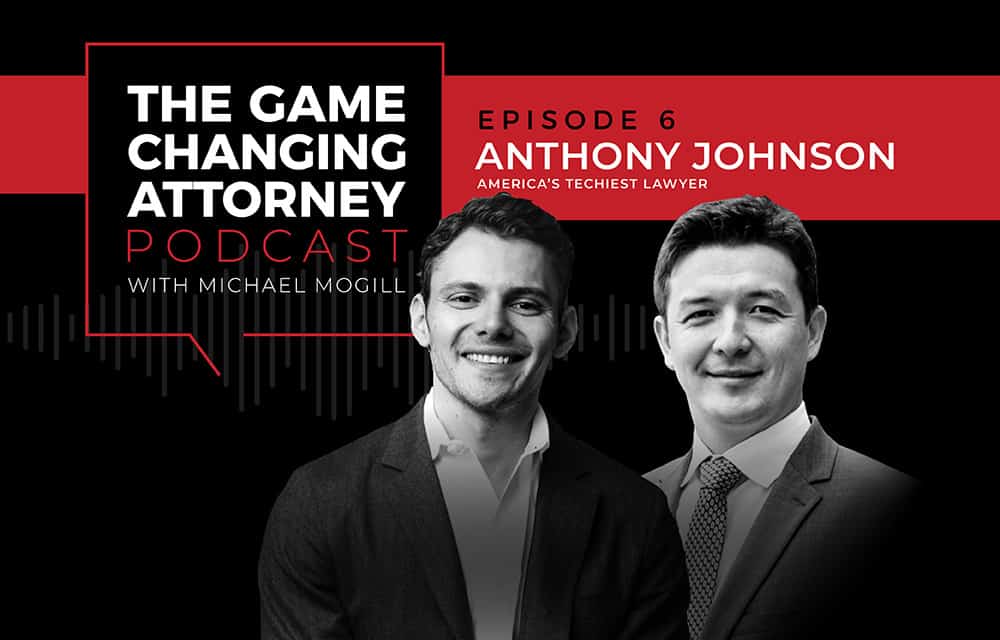
EPISODE 6 — Anthony Johnson — The Elon Musk of the Legal Industry
Most people don’t understand what Anthony Johnson does — and those who do believe he’s either crazy, brilliant, or a combination of the two.
A computer science undergrad with a background in software and SaaS, AJ made his way into the legal world in an unlikely way. Fresh out of law school and working out of his closet, his understanding of digital marketing drove his firm to become the leading firm in Arkansas on Google Places. The catch? He hadn’t yet tried a case.
Years later, AJ has become a true pioneer in the legal world thanks to his unique mindset and innovative approach to business.
On this episode of The Game Changing Attorney Podcast, Anthony Johnson dives deep into:
- How a data-driven attorney approaches marketing, hiring, and “the human element” of running a law firm
- Why firms should share their data with their rivals
- Whether it’s possible to be both a great business owner and a great lawyer.
- and much more!
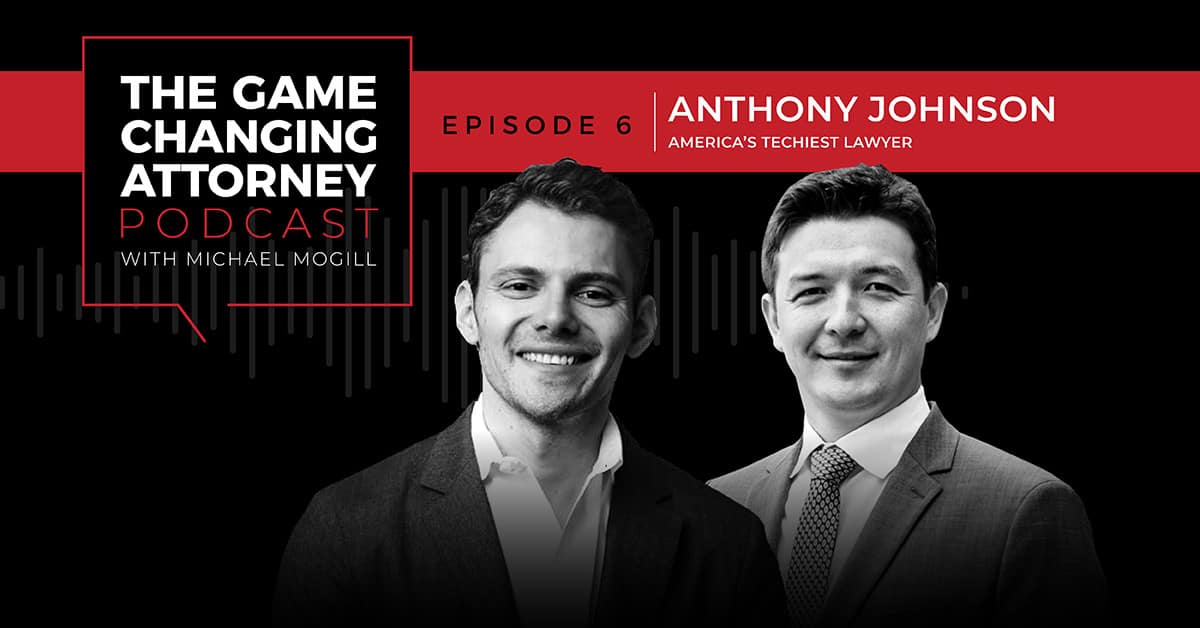
Listen & Subscribe
Show Notes:
1:57 – Becoming America’s Techiest Lawyer. “It was like my first or second year of practice. It goes to show kind of how the industry is too. What happened was, there was somebody that submitted me for this American Bar Association “Top Techiest Lawyers in America” list. And I think the premise of my submission was something around how we were completely cloud-based — we had cloud phone systems. We were all digital files. We were a paperless office. So the bar in 2013 — maybe 2012, whenever that was — to be one of America’s techiest lawyers, it just dawned on me how relatively low I was. Either that, or I just didn’t think I was deserving to be it at that time. So, it’s amazing how far we’ve come since then. But I guess that as a moniker is not a bad brand to get early on.”
3:02 – A fairly unique background. “I think it first starts with my background being fairly unique. My dad was a computer guy. He was in military intelligence. I’ve been building computers since I was a kid, and then went into computer engineering for undergrad and did a lot of programming there. Then I actually went into finance next, then money management, and then into law school. Kind of during that path, I also had like an SEO company — a digital marketing company — and built custom web applications. So, definitely a diverse background, not the typical, you know, English major to poly sci kind of lawyer that you typically hear of.”
8:26 – I want to learn from the best. “Every time I get a good case, I’ll go ask who the best lawyer is in commercial litigation, construction, litigation, or whatever. I’ll say, ‘Hey man, I’ve got a client. Teach me how to do it — I want to know how to learn from the best.’ And that’s kind of what led me down this path of working with other attorneys, trying to accelerate my learning curve.”
9:45 – A win-win for everybody. “It was kind of this dichotomy of, ‘I know I’m the best; I can be the best; I’ll try harder and make it up,’ and the other side of the coin being, ‘I really am not the best. I don’t know shit about how to do even lawyering let alone this guy’s case, but I’m the best he’s got.’ So that drove me to say, ‘Well, how can I still help this guy? How can I learn, but how can I also get him the best representation in the world that I can think of for his money?’ And so that drove me to go look for anybody that I thought was the best lawyer out there that would teach me how to do this, and give that guy the level of competency of an experienced lawyer. At the same time, allowing me to learn does not cost the client anything more. In the end, it was a little bit of an altruistic driving force. You know, trying to really help the greater good and find a win-win for everybody.”
14:22 – Leveling the playing field. “Our challenge as an industry — and as a world — is to figure out how we can understand data on the same level, like leveling the playing field. The legal industry right now is very fragmented. All the technology is different, and every lawyer has a different CRM and a different way of doing it, so we’ve really broken down what these pieces of data are at their core. Like not ‘What’s the jurisdiction?’ or ‘Who’s a co-counsel?’ but is this a role relationship with the case, you know, from a database perspective? And is that role a person, or is it a group of people, or is it an entity? Because it’s all the same thing in the end. So how can you structure this framework that ties in every other platform in the industry? If we can standardize this framework, we can essentially be the Tower of Babel of the industry — and if we can connect our industry and create some kind of solidarity that actually matched what the defense and the insurance companies have with Colossus and those mechanisms, then we would actually have a level playing field.”
16:40 – An alternate take on competition. “I don’t look at other lawyers as my competition. I think of people that are large, that are trying to do things cutting edge — maybe a rival at the time — but it’s not like if I beat him I win, you know? I’m not trying to beat him, I’m trying to beat him to the same goal. If he encourages me to get there, I encourage him to get there too, because we’re going after the same thing. I mean, I’m going to get there first, but it’s not necessarily that once I beat him, I’m done doing what I’m doing.”
18:55 – It’s about what you do with the data. “So the fact that they had quantitative data is not that helpful — it’s whenever you have quantitative data, your ability to architect understanding and to structure data and information in a way that you can test that feedback loop. So you throw the information through it, you see if you’re right or not, and you can incrementally iterate proving out this architecture. That’s what quantity is for, because once the data is out on the internet, whether it’s Facebook or Google or whatever — once you can digest the data, your understanding is exponential, because all the data lives on the internet. It’s not that hard to get. That’s kind of how I approach it. It’s about really architecting this fundamental understanding of how data works and how we can use the information we’re getting at a certain bandwidth in order to iterate that feedback loop, improve it, and then try some curated kind of stress test version of what data should look like in the industry. And then convince everybody else to use it, which is actually the easy part.”
21:17 – Changing the rules. “There’s no way to play by the rules of that game — the centralized game. There’s no way to beat Facebook at being the best social media company or the most used one. It’s just too late — they’re too big. So the only way to disrupt that industry is to kind of change the rules. And the only way to change centralized databases and the ownership of data in the way it’s structured today is to figure out a way to start siphoning that data into a new world — whether it’s decentralized or quantum databases or something like that — to where it can build on itself. So the only way to truly regulate something as large as the internet is to get everyone access to it in the same way, and then let it curate itself and self-organize.”
24:23 – From micro to macro perspective. “Once you start operating at a level where you have enough of this underlying traffic, and a foundational audience to impact that with a brand, you can’t really measure incrementally — or at least quantitatively — the direct impact of a brand on every single lead you have. But if you look at it from a more macro perspective, you almost have to step back — which is weird for me to say — and you have to look at it this way: when you spend this much more money on this brand, you see what you did compared to everything else you did, and you see the lift throughout the whole company. You have to really look at that metric from more of a qualitative and more macro perspective.”
26:09 – Brand marketing leads to profitability. “A lot of the direct-to-consumer marketing and digital marketing that is more leads-based maybe drives quantity — so it builds your audience — but it really just kind of pays the bills. So what I dug into finally after a while is realizing that most people that are very successful barely pay the bills with their direct-to-consumer marketing, but their brand marketing causes their second generation cases, causes their referral centers, causes evangelists of your tribe, of your brand and of your firm. And that is where they have exponential growth when it comes to profitability. So it’s definitely a two-part component, and if you want to have success and profitability, if you don’t have a brand, you kind of lose that entire thing.”
28:09 – Create something bigger than yourself. “I think the issue is that there’s this human equation that is going on in the world, and when you have more and more people, you start realizing that everyone has nuances — what motivates them, why they do things, and their purpose in life — and the only way to overcome these individualized motivations is to create some kind of vision or purpose that is bigger than yourself.”
32:20 – Great culture = great people. “We’ve done a lot of work to facilitate this. It’s not just like saying it and finding people that naturally do it. It’s actually architecting the way you operate in a way that allows them to gain those attributes, regardless of their personality. I think by doing so we have an epic level of quality people, and that’s across the board. It’s not because we got lucky, and we just picked the 40 people that were great.”
34:10 – Turning a vision into a feeling. “So if your vision becomes a feeling, it’s something that people can resonate with, and they don’t have to have their own ‘change-the-world why’ — but they feel you, they feel that vision, and they get behind it and support it.”
36:24 – The future of the legal industry. “There’s a lot of interest in the technology part of legal because we’re behind. You’ve got a lot of productization of the market. You’ve got a lot of people trying to build standardization in the data and the technology. What I can see in the future happening is that it becomes standardized: there becomes this kind of shared use of data. Whether or not they actually share the actual data between firms, but the ability to go and centralize this data, maybe in a non-identifiable way that empowers the industry.”
41:30 – Losing sight of your vision. “Kodak had 80 years where they were the leader. Then ironically, they were the ones that invented the digital camera, but they were making so much money on film and printing and paper and traditional photography, that’s why they sat on that. They lost the sight of their vision because that guy had passed away, and then they literally invented the future that was going to put them out of business.”
43:31 – Proving your core model. “We need to spend a lot of time on proving our core model, which is, are we a law firm that can make money? Can we help people, can we get cases, can we make money, and can we do it better than anyone else? So that’s our core. We need to spend 70-80% of our time on that. Like, yes, I am allured by innovation and disrupting and making robots and predictive modeling. But that’s not pragmatic after you weigh how much bandwidth you have. What are the resources you need? How much impact is there? What risk is there in not doing it? You know, if you can’t be profitable and you don’t operate effectively, your risk is everything.”
45:37 – What does being a game changer mean to you? “So when I think about a game changing attorney, it’s not trying to incrementally play the rules better to catch up to somebody who’s already leading it. It’s what can you do to dynamically change the way you operate, the way you think, and the way you approach business? How do you set yourself apart? Not by playing the rules, but by changing the rules.”
EPISODE RESOURCES
The Art of Innovation (Guy Kawasaki TED Talk)
General Magic (documentary)
Connect with Michael
- Text directly at 404-531-7691
